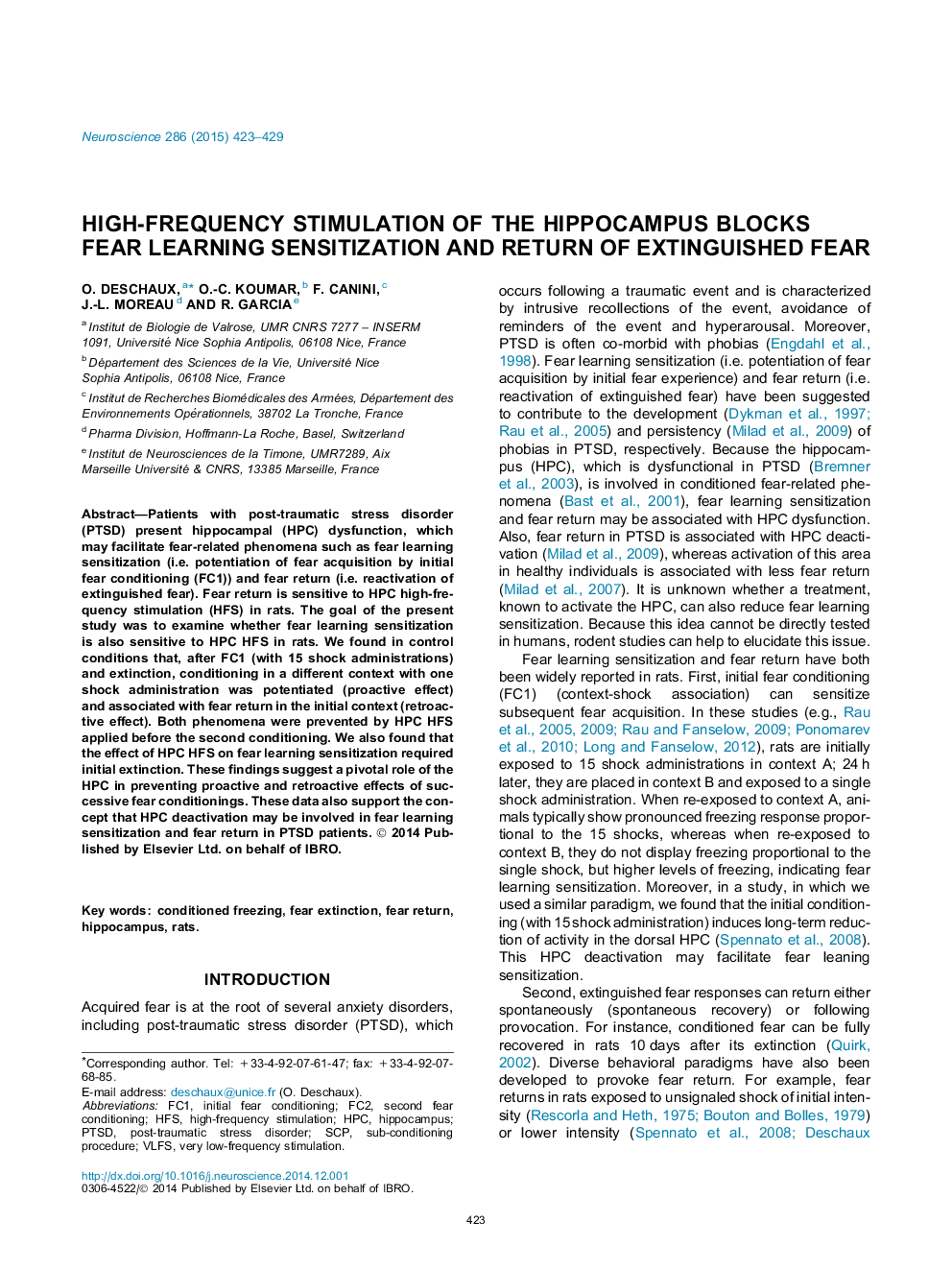| Article ID | Journal | Published Year | Pages | File Type |
|---|---|---|---|---|
| 6273096 | Neuroscience | 2015 | 7 Pages |
Abstract
Patients with post-traumatic stress disorder (PTSD) present hippocampal (HPC) dysfunction, which may facilitate fear-related phenomena such as fear learning sensitization (i.e. potentiation of fear acquisition by initial fear conditioning (FC1)) and fear return (i.e. reactivation of extinguished fear). Fear return is sensitive to HPC high-frequency stimulation (HFS) in rats. The goal of the present study was to examine whether fear learning sensitization is also sensitive to HPC HFS in rats. We found in control conditions that, after FC1 (with 15 shock administrations) and extinction, conditioning in a different context with one shock administration was potentiated (proactive effect) and associated with fear return in the initial context (retroactive effect). Both phenomena were prevented by HPC HFS applied before the second conditioning. We also found that the effect of HPC HFS on fear learning sensitization required initial extinction. These findings suggest a pivotal role of the HPC in preventing proactive and retroactive effects of successive fear conditionings. These data also support the concept that HPC deactivation may be involved in fear learning sensitization and fear return in PTSD patients.
Keywords
Related Topics
Life Sciences
Neuroscience
Neuroscience (General)
Authors
O. Deschaux, O.-C. Koumar, F. Canini, J.-L. Moreau, R. Garcia,
